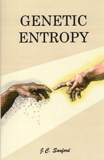Opossum: Genome Sequenced
ScienceNOW: “Opossum’s Genome Is in the Bag“
A team of scientists led by Tarjei Mikkelsen and Kerstin Lindblad-Toh of the Massachusetts Institute of Technology and Harvard University announced this week in Nature the completed sequencing of the opossum genome. The opossum joins a motley contingent of animals who have had their genomes sequenced—mice, chimpanzees, and macaques—and is the first marsupial with its sequence “in the books.”
Elizabeth Pennisi, writing for ScienceNOW, explains the scientists’ primary motivation for sequencing such a mundane critter:
The team discovered that more than 15,000 of 19,000 opossum genes “clearly correspond” to human genes.
Unraveling the genomes of dozens of animals with varying degrees of relatedness is key to learning how humans evolved. Researchers decided to sequence this opossum, Monodelphis domestica, in part because marsupials branched off the mammalian evolutionary tree 180 million years ago.
The team discovered that more than 15,000 of 19,000 opossum genes “clearly correspond” to human genes. Evolutionists insist such commonality is due to shared descent; however, the similarity in genes is just as easily explained by a common designer creating many forms of life that share features—just as the architectural plans for two houses, built for the same purpose and designed by the same architect, will likely have similarities. What doesn’t fit with evolutionists’ expectations, however, is the team’s surprise finding on opossums’ immune systems:
[O]f the marsupial's 19,000 or so genes, more than 15,000 clearly correspond to human genes, including an unexpected number important to the body’s defenses. That’s intriguing, the researchers say, because the marsupial immune system is supposed to be primitive.
Instead, a paper in Genome Research describes many complex immunity genes normally associated with placental mammals. […] Moreover, the opossum has a unique gene [that indicates] opossum-specific advances in the complexity of immune defenses. [Emphasis added]
Of course, these findings are explained perfectly by the creation account of origins: because opossums are not “primitive” ancestors of humans, it is no surprise to creationists that opossums have a complex immune system—one that even has a unique component. However, as one would expect, evolutionists merely adapt their previously held ideas to fit these “surprises”:
These findings are explained perfectly by the creation account of origins.
“We can now see that the common ancestor of marsupials and [placental mammals] had all the basic building blocks that now make up the human immune system,” says co-author Katherine Belov of the University of Sydney in Australia.
Genome sequencing is a useful example of the inherent “flexibility” and unfalsifiability of evolutionary theory: if sequencing shows that two animals thought to be distantly related are actually closely related (or vice versa), evolutionists accept the new finding and simply ignore evolutionary theory’s errant prediction.
Remember, if you see a news story that might merit some attention, let us know about it! (Note: if the story originates from the Associated Press, Fox News, MSNBC, the New York Times, or another major national media outlet, we will most likely have already heard about it.) And thanks to all of our readers who have submitted great news tips to us.
(Please note that links will take you directly to the source. Answers in Genesis is not responsible for content on the websites to which we refer. For more information, please see our Privacy Policy.)
Recommended Resources

Answers in Genesis is an apologetics ministry, dedicated to helping Christians defend their faith and proclaim the good news of Jesus Christ.
- Customer Service 800.778.3390
- © 2024 Answers in Genesis







